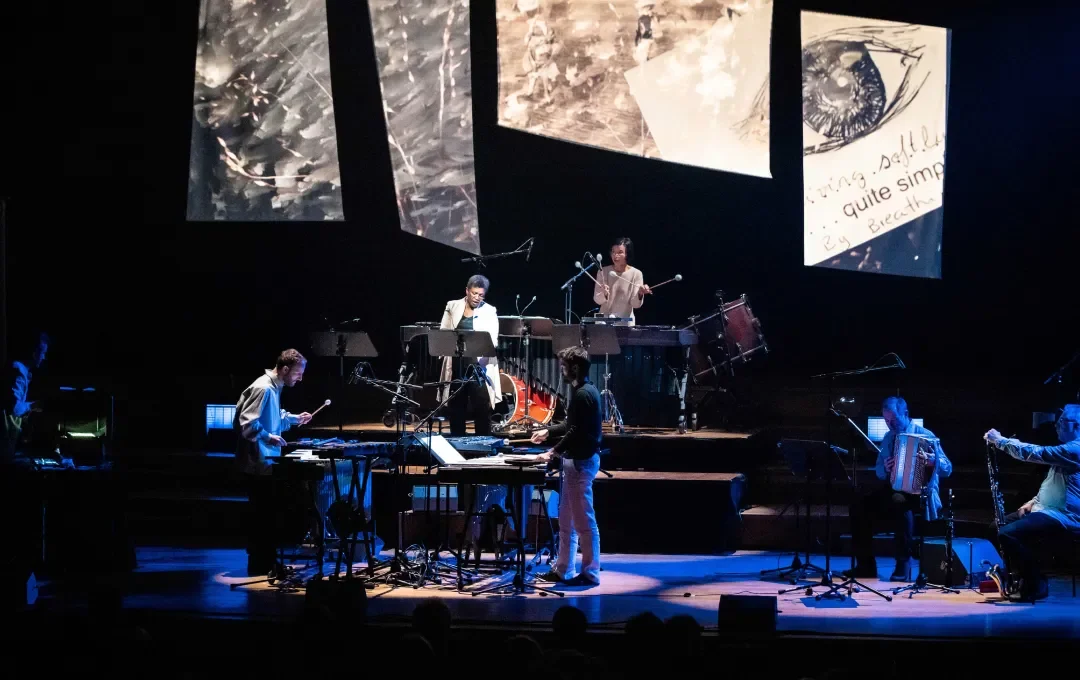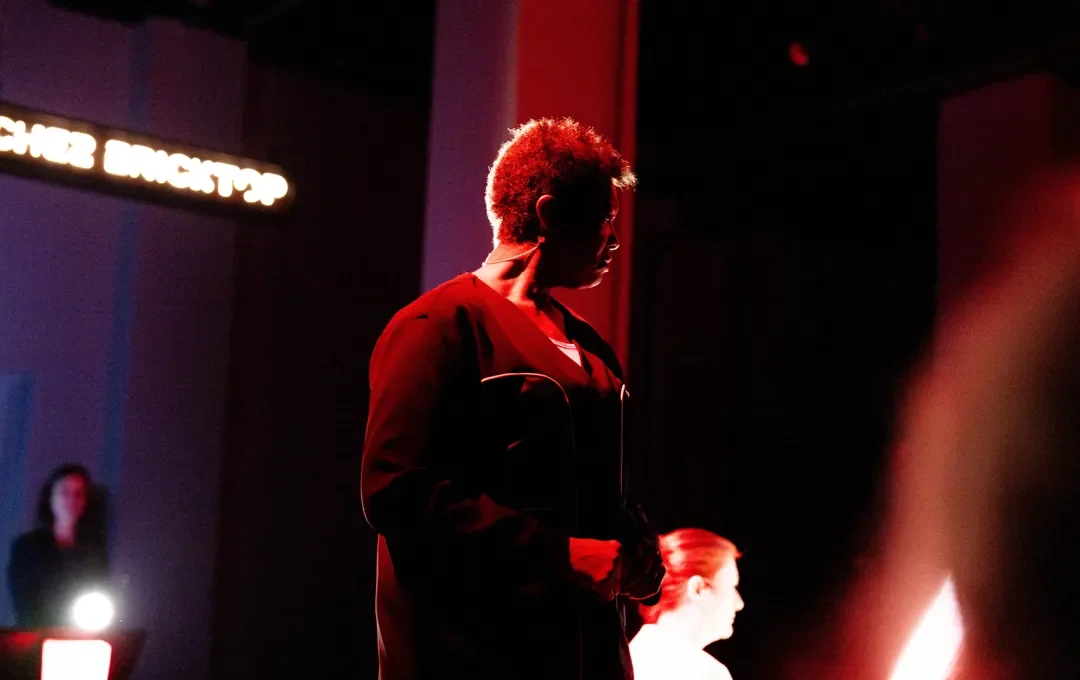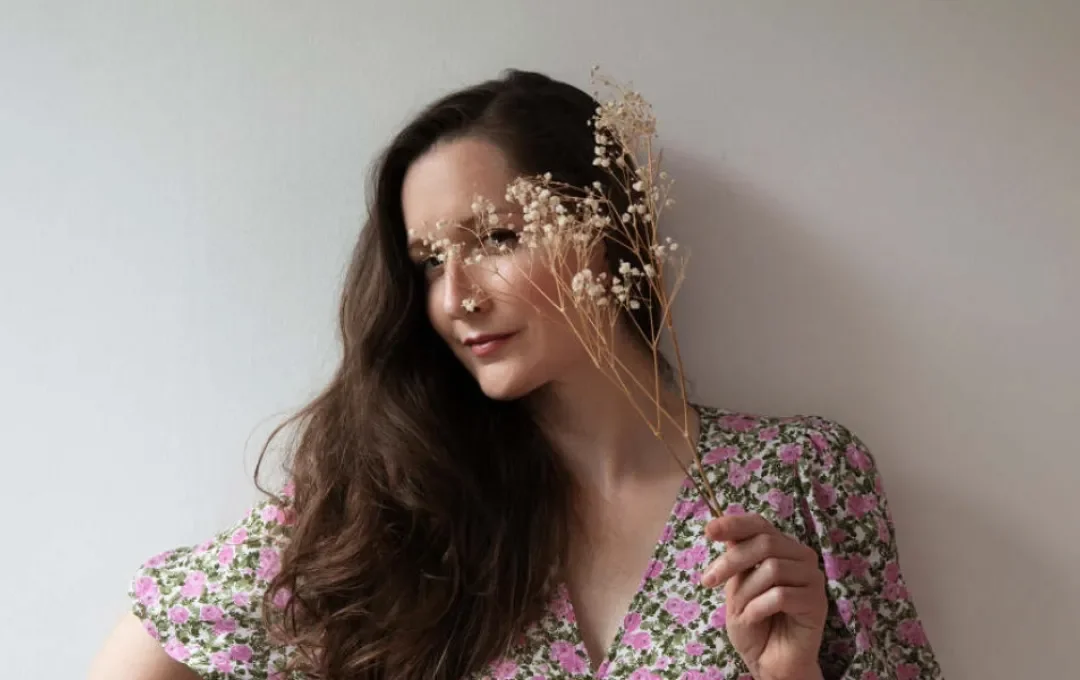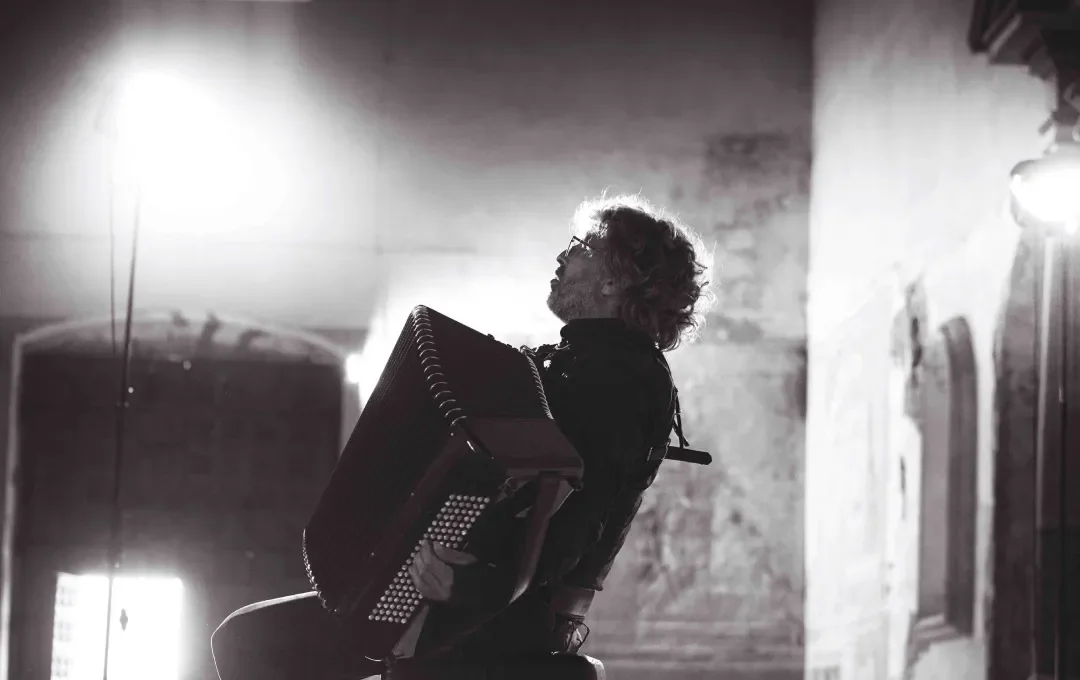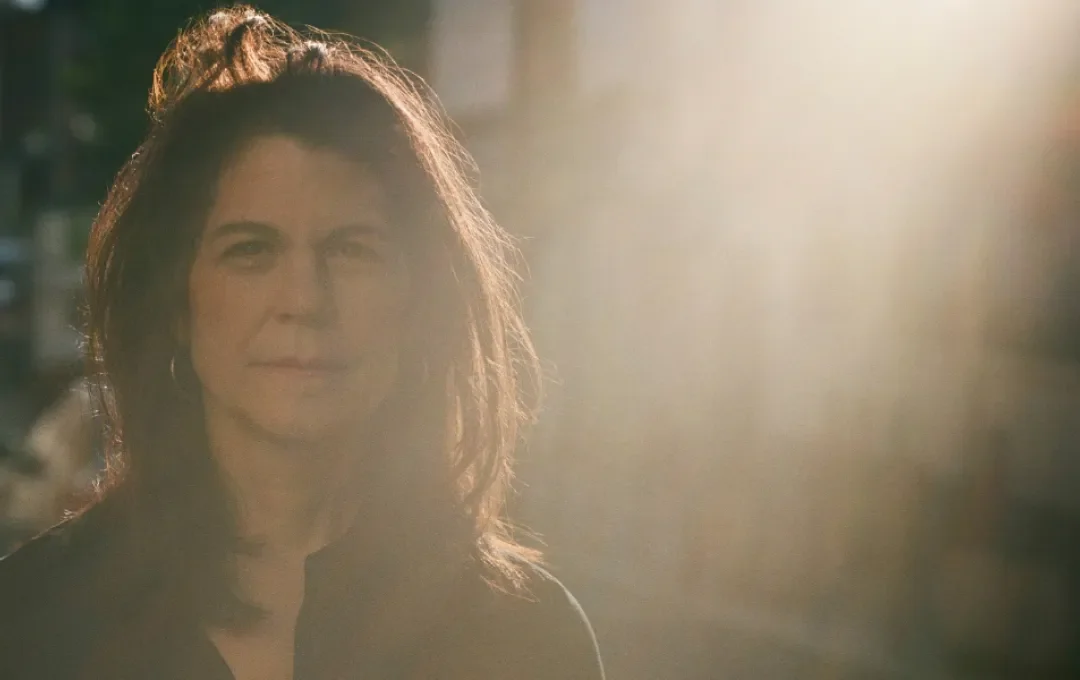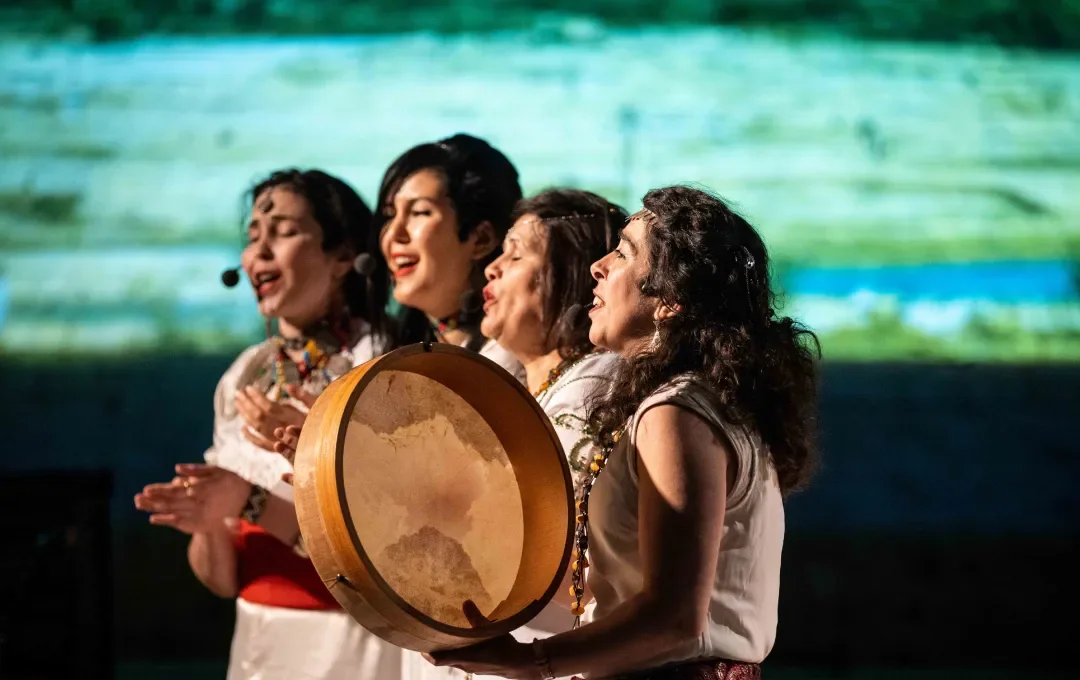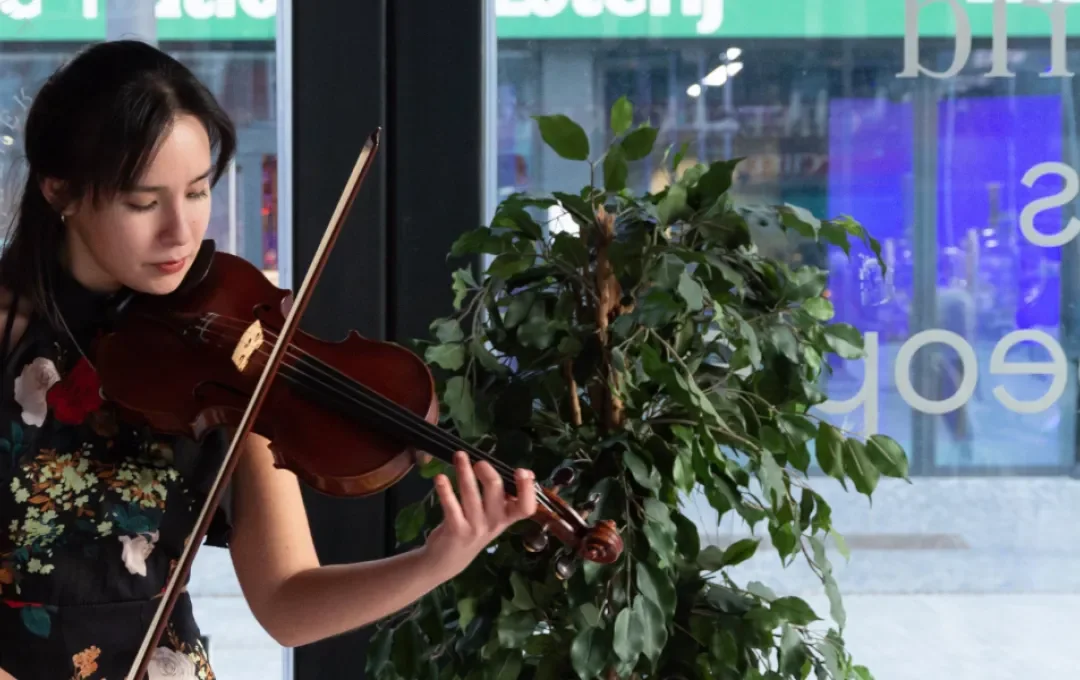
Stories without words
In conversation with Sara Salvérius
Unconventional. Empathetic. Curious. Witty. Attempting to capture Sara Salvérius in a single word is a fool’s errand: the Ghent accordionist and composer is as multifaceted as her music. When we meet, she’s just back from a five-day residency at the Clos Bizet residential care centre in Anderlecht. During her stay there, she had the opportunity to talk to the residents and listen to their stories, which became the basis for musical creations. She will perform these compositions in a tour of eight Brussels residential care centres, together with clarinettist Jean-Philippe Poncin.
What was the residency like for you, as an experience?
It was an intense and extremely enriching experience. Also a bit strange, of course: I was staying temporarily in a place that for most people is their final destination. I’m a sensitive soul, so all the impressions hit me quite hard. In those five days I witnessed and experienced all kinds of emotions: from sadness and loneliness to wonder and hope.
How did you spend your time during stay?
I mainly visited residents individually and talked to them in private. That suits me better than, say, setting myself up in the common areas. I really wanted to make contact with people. For example, I met a poet who was struggling with the fact that he could find fewer and fewer words. I helped a visually impaired couple find a pair of glasses, and in the process discovered their 'museum' of old stuffed animals - a bed full, each with its own story. But I also spoke to a man who was largely paralysed after a stroke. He could barely move and had difficulty getting his words out. Yet we were able talk to each other: his eyes spoke volumes. Despite his physical limitations, he was overflowing with energy and zest for life.
How did those encounters affect you?
They got under my skin. It often took me a while to recover from them, but I was also enormously inspired. It's crazy: the people I talked to were so grateful that someone could listen to them in peace, without having to look at the clock. But their stories also felt like a gift to me. After such a conversation I would usually retreat to my room for a while to play the accordion and compose, and the music would spontaneously emerge. Klarafestival asked me to write one composition, but it ended up being eight (laughs). I wrote four of them during my stay; four others at home.
How did those works come about?
When I make music, I always start from a certain state of mind. I improvise on that feeling, as it were, and over time something emerges that sticks. I often go for a walk in the middle of the writing process and complete the music in my head as I go. That's how it went now, with the conversations as a source of inspiration. You can hear all these different impressions in the compositions: some passages are melancholic and meditative, others energetic and rhythmic. Together they tell a story without words. I hope they will take the listener on a journey through emotional worlds.
share
How would you describe your musical language?
Wow, difficult question (laughs). What I do doesn’t have much to do with the typical musette repertoire for accordion. My work is somewhere between classical and folk, I think. I love baroque music very much, so that love also shines through. I forge my own language from all those influences. But I still find it strange to call myself a 'composer', even though the love of creation has always been somewhere in me. I see myself as an accordionist who makes music.
When did you start doing that?
Ever since I started playing the accordion at the age of fourteen, I knew that I wanted to make music myself. But during my conservatory studies, the critical voice in my head took over. I became a performing musician and the dream of my own work ended up on the shelf - until a few years ago when my sister took her life. That event was so drastic that everything broke open. During that period the accordion kept me going. All the feelings that were bottled up inside me came to the surface as music. Although I thought it was something temporary at the time, that creative flow has actually never stopped. My first solo album Trapped in Sight was released in 2018; my second, Equinox, in 2021. By then I had climbed out of the rawest emotion and felt more balance between light and darkness – hence the title. In the meantime, I have an increasing need for connection with others: I made my most recent CD, Pendulum, together with the string quartet Sun*Sun*Sun. And the link with Jean-Philippe Poncin for Klarafestival in de Zorg also reflects that desire for connection.
Why did you choose the clarinet as a sparring partner in this project?
I chose this instrumentation because I wanted to give myself a new challenge. Accordion and clarinet fit very well together: they exude the same melancholy. The choice of Jean-Philippe Poncin was also an easy one. He’s a good friend, and I knew he would be the perfect person for this project. Jean-Philippe is very caring and enjoys talking to a wide variety of people. When I suggested this tour to him, he was immediately enthusiastic. We rehearsed yesterday, and it sounds really great (laughs).
Interview by Katherina Lindekens
Image © Johan Jacobs
